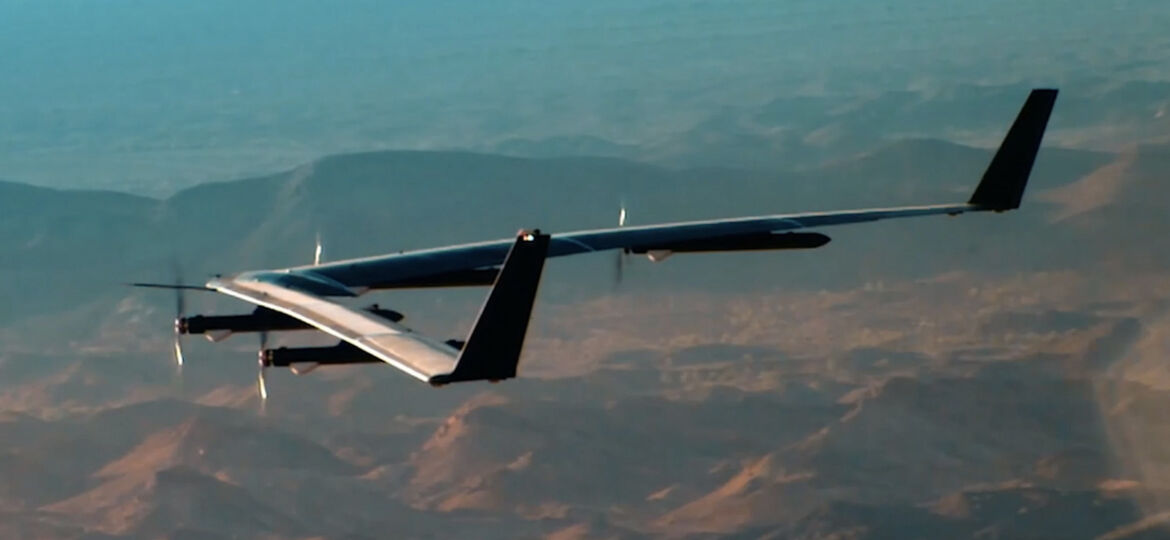
WHY THIS MATTERS IN BRIEF
Only half the world is connected, Facebook’s connecting the other half.
Facebook has achieved the first successful test flight of the Aquila drone, marking another notable milestone in the firm’s efforts to deliver internet access to 4 billion people worldwide who are still off the grid in regions too remote and too expensive to be served by fibre or WiFi.
Aquila is a battery-powered, auto-piloted behemoth with a wingspan of 43 metres, about the same as a Boeing 737, yet it weighs just 400kg and the prototype drone flew at a few thousand feet for 96 minutes over the deserts of Yuma, Arizona.
The plan is that the skies will eventually be dotted with multiple connected Aquilas, each flying at around 18,000m (60,000ft) and able to stay airborne for months at a time using solar power to charge the batteries. The drones will beam the internet wirelessly to previously unconnected parts of the planet.
Engineers from the company’s Connectivity Lab listed the ongoing challenges to making the project a success, which include optimising the aerodynamics to fly at altitudes where the air is very thin, integrating solar power (the prototype’s batteries are not charged in flight) and reducing the cost of production.
“Over the course of the next several months we’ll continue to study the data we obtained from this initial flight,” they said.
“As we conduct more test flights, we will add more aircraft to the test fleet, fly to higher altitudes, and explore the high-speed regime, where the airframe’s flexibility becomes limiting, and the low-speed loiter regime, where the aircraft will eventually provide connectivity to the ground.
“We will add instrumentation to the aircraft to help us learn about the structural dynamics, stability and control derivatives, and the all-important aerodynamic efficiency. We’ll also experiment with different aircraft form factors, sizes and weights as we learn more.”
Aquila is part of Facebook’s Internet.org initiative to expand the reach of the internet, although not all have taken to the plans.
Some have warned that if Facebook and a few other large companies deem which services are important to new web citizens, they are in effect creating a walled garden internet, going against the purpose of web access for all.
















